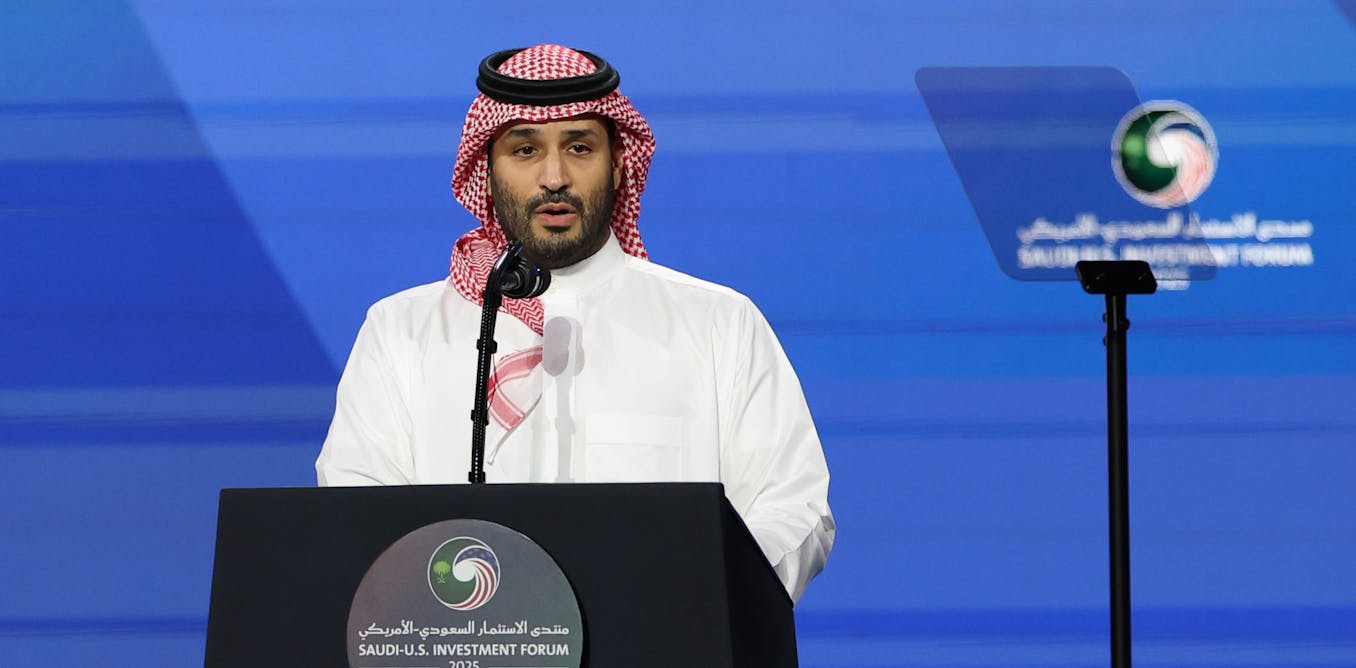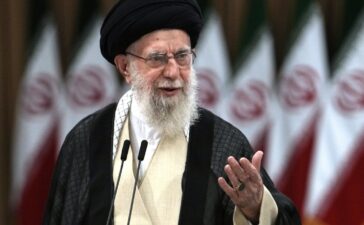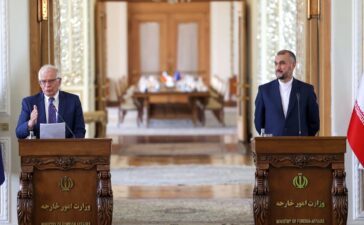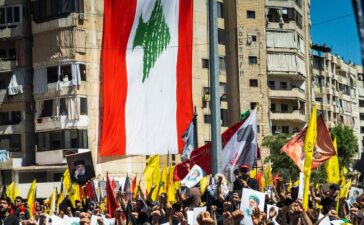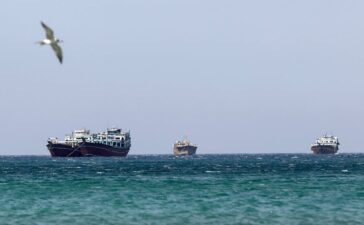But the recent euphoria has given way to unease as the push by Israel – and now the US – for regime change in Tehran has become clear. Following US strikes against Iranian nuclear sites over the weekend, US president Donald Trump has floated the idea of overthrowing the government to “make Iran great again”.
Retaliatory attacks by Iran on American forces at bases in Qatar and Iraq have now brought the conflict closer to home. The strikes have prompted Gulf states to close their airspaces, while Qatar has warned of its right to respond directly “in a manner equivalent with the nature and scale” of Iran’s attack. What effect the attacks will have on the involvement of Gulf countries in the conflict will soon become clear.
The Gulf states have long worked to keep Iran’s influence in check without attempting to topple its leadership. They have sought rapprochement, with Saudi Arabia and Iran reestablishing diplomatic ties in 2023 and reopening embassies in each other’s countries.
Gulf leaders view the alternative to warmer relations – be it a chaotic regime change or a globally interconnected or expansionist Iran – as possibly even more destabilising for the Gulf region and its economic ambitions.
Iran, for all its regional adventurism, is still regarded in the Gulf as an organic part of the Middle East. It is a civilisation with deep, ancient roots and an uninterrupted history of co-existence and cultural co-creation within the Islamic world.
This stands in contrast to how Israel is perceived. Some Gulf states have established diplomatic relations with Israel since 2020, under the framework of the Abraham Accords. But there remains a wider perception – particularly among citizens of these countries – that Israel is an imposed colonial presence whose threat to regional stability is growing.
Iran has hardly been a benign actor. Its government has played a destabilising role across the Arab world, from propping up the ruthless regime of Bashar al-Assad in Syria to supporting armed groups in Iraq, Lebanon and Yemen. And now it has attacked the sovereign territory of two Gulf countries.
It also continues to occupy three islands that are claimed by the United Arab Emirates: Greater Tunb, Lesser Tunb and Abu Musa. Iran’s interventions have left behind a trail of sectarianism, militarisation and humanitarian crises.
Yet Gulf leaders separate the actions of the Iranian regime from the people of Iran. Repeated waves of protests within Iran, particularly the women-led uprisings of recent years, have reinforced the sense that ordinary Iranians are themselves victims of a repressive regime.
There’s empathy within the Gulf for Iranian society, coupled with recognition of the historic and cultural ties that bind the region and its people. Saudi Arabia’s crown prince, Mohammed bin Salman, described Iran as a “neighbour forever” in 2022, and with this neighbourliness comes a preference for stability over collapse.
Gulf states would rather not see Iran plunge into chaos. This could unleash humanitarian crises and refugee flows that would be morally troubling and economically disastrous for the region.
No decisive winner
While there is no appetite within the Gulf for regime change in Tehran, views expressed in government-controlled media suggest there is interest in seeing a political transformation in Israel. It seems to me that the Gulf states would prefer neither Iran nor Israel to emerge as a decisive winner in this military confrontation. A prolonged war of attrition weakens both, reducing the threats they pose to Arab sovereignty and regional stability.
Such a conflict could result in political change in Israel that sees the end of oppressive policies against Palestinians and curbs to regional aggression. This would ease the political cost of normalising relations with Israel. Current efforts to integrate Israel into the regional order place Gulf leaders in an awkward position, appearing to side with a state that routinely violates Arab rights.
A regime change in Iran, particularly one that produces a nationalist, pro-western government, would present new complications for the Gulf. A more internationally connected and economically ambitious Iran could overshadow Gulf economies and revive old territorial disputes.
A prolonged conflict would, of course, raise the prospect of the Strait of Hormuz emerging as a flashpoint. A closure, which Iran is reportedly discussing as a possibility, would disrupt one-fifth of the world’s oil supply and plunge global markets into turmoil.
Neither side may actively seek this, but the risk of miscalculation is high. For Gulf economies, whose futures are tied to global energy markets and diversification projects, such an outcome would be catastrophic.
However, at least for now, Gulf countries seem relatively calm about the prospects of a closure. They issued a series of statements on June 22, expressing concern over the US strikes on Iran and calling for restraint. But the tone of their statements was rather measured.
The mood in the Middle East appears to be shifting. As one Emirati analyst, Mohammed Baharoon, recently warned: “Israel risks seeing itself as Thor, the mythical deity whose real status as a god is related to his hammer. This is dangerous for Israel’s future in the region and the world.”
Baharoon added on social media: “Hammer-wielding Israel will have very limited space in a region that seeks economic partnerships over security alliances.” In other words, the region’s priorities are shifting, and Israel’s overreliance on military power is increasingly at odds with the future that the Gulf leaders are trying to shape.
They wish to make the region an economic magnet for investment, not a cinematic backdrop for perpetual conflict.
This article written by Mira Al Hussein, Research Fellow at the Alwaleed Centre for the Study of Islam in the Contemporary World, University of Edinburgh and is republished from The Conversation under a Creative Commons license. Read the original article.
